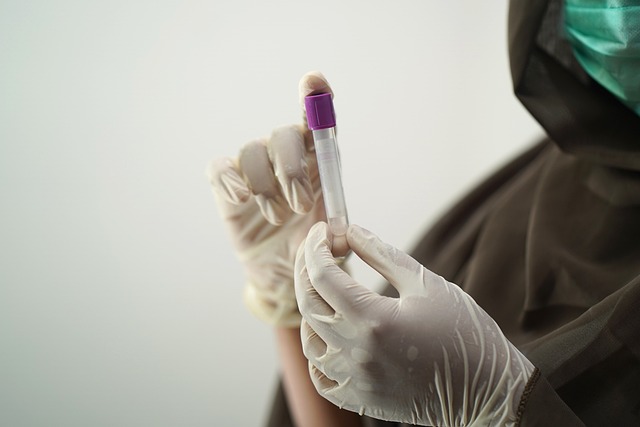In the UK, a simple Testosterone Blood Test is instrumental in evaluating male health by measuring testosterone levels. This test identifies low testosterone (hypogonadism), addressing symptoms like energy loss and muscle mass decline. With results reported in nanomoles per litre (nmol/L), normal ranges vary slightly among labs, and levels below 300 nmol/L prompt further investigation. Timely intervention through lifestyle changes or tailored treatments improves overall health and quality of life.
“Testosterone level testing is a crucial step for men aiming to maintain optimal health. This hormone plays a pivotal role in various male bodily functions, from muscle mass regulation to sexual health and bone density. In the UK, understanding and accessing a simple UK Testosterone Blood Test can be life-altering. This article delves into the significance of testing, highlights potential health issues early detection can prevent, and guides you through the process of a UK Testosterone Blood Test, offering insights into results and subsequent steps.”
- Understanding Testosterone: The Hormone and Its Role in Male Health
- Why Get Tested? Identifying Potential Health Issues Early On
- UK Testosterone Blood Test: Process, Results, and Next Steps
Understanding Testosterone: The Hormone and Its Role in Male Health
Testosterone is a hormone that plays a pivotal role in maintaining male health and well-being. Often referred to as the ‘masculine hormone’, it is produced primarily by the testicles, with small amounts also synthesized in the adrenal glands. Testosterone is responsible for various physical attributes and functions, including muscle mass and strength development, bone density maintenance, red blood cell production, and the depth of facial and body hair. It also contributes to libido and sexual function, making it an essential hormone for overall male reproductive health.
In the UK, awareness about testosterone levels and their impact on health is growing. A testosterone blood test is a common diagnostic tool used to assess male hormonal balance. This simple procedure involves taking a sample of blood, usually from a vein in the arm, to measure the amount of testosterone present. Results can provide valuable insights into an individual’s overall health, helping healthcare professionals identify potential issues such as low testosterone (hypogonadism), which can lead to symptoms like decreased energy levels, muscle mass loss, and sexual dysfunctions.
Why Get Tested? Identifying Potential Health Issues Early On
Testing your testosterone levels can be a proactive step for men concerned about their health and well-being, especially in the UK. It is a simple blood test that offers valuable insights into potential hormonal imbalances or underlying health conditions. By identifying low testosterone (low T) early on, individuals can take appropriate actions to address the issue before it develops into more serious problems.
Early detection is crucial when it comes to men’s health as many conditions related to low testosterone can be managed effectively if caught promptly. This includes conditions like hypogonadism, which can cause a range of symptoms including decreased muscle mass, fatigue, and reduced sexual function. Regular UK testosterone blood tests can help ensure that any deviations from the normal range are identified and addressed, allowing for timely intervention and potential improvements in overall health and quality of life.
UK Testosterone Blood Test: Process, Results, and Next Steps
In the UK, a Testosterone Blood Test is a straightforward and non-invasive procedure that measures the level of testosterone in an individual’s blood. This test is often recommended for men experiencing symptoms of low testosterone, such as decreased energy levels, muscle mass loss, or changes in sexual function. The process typically involves drawing a small sample of blood from a vein, usually in the arm. The sample is then sent to a laboratory for analysis.
Results of a UK Testosterone Blood Test are typically reported in nanomoles per litre (nmol/L). Normal ranges can vary slightly between labs, but generally, levels below 300 nmol/L may indicate hypogonadism or low testosterone. If the test results show low testosterone levels, the next steps could include further investigations, such as a physical examination and discussion of potential causes with a healthcare professional. Treatment options may include lifestyle changes, medication, or other interventions tailored to address the underlying issue.
Testosterone level testing through a UK Testosterone Blood Test can be a proactive step towards managing male health issues. By understanding your hormone levels, you can identify potential problems early on and take appropriate measures to address them. This article has outlined the importance of testosterone in male health, the benefits of testing, and the straightforward process for a UK Testosterone Blood Test. Remember, early detection is key to effective treatment and improved quality of life.
